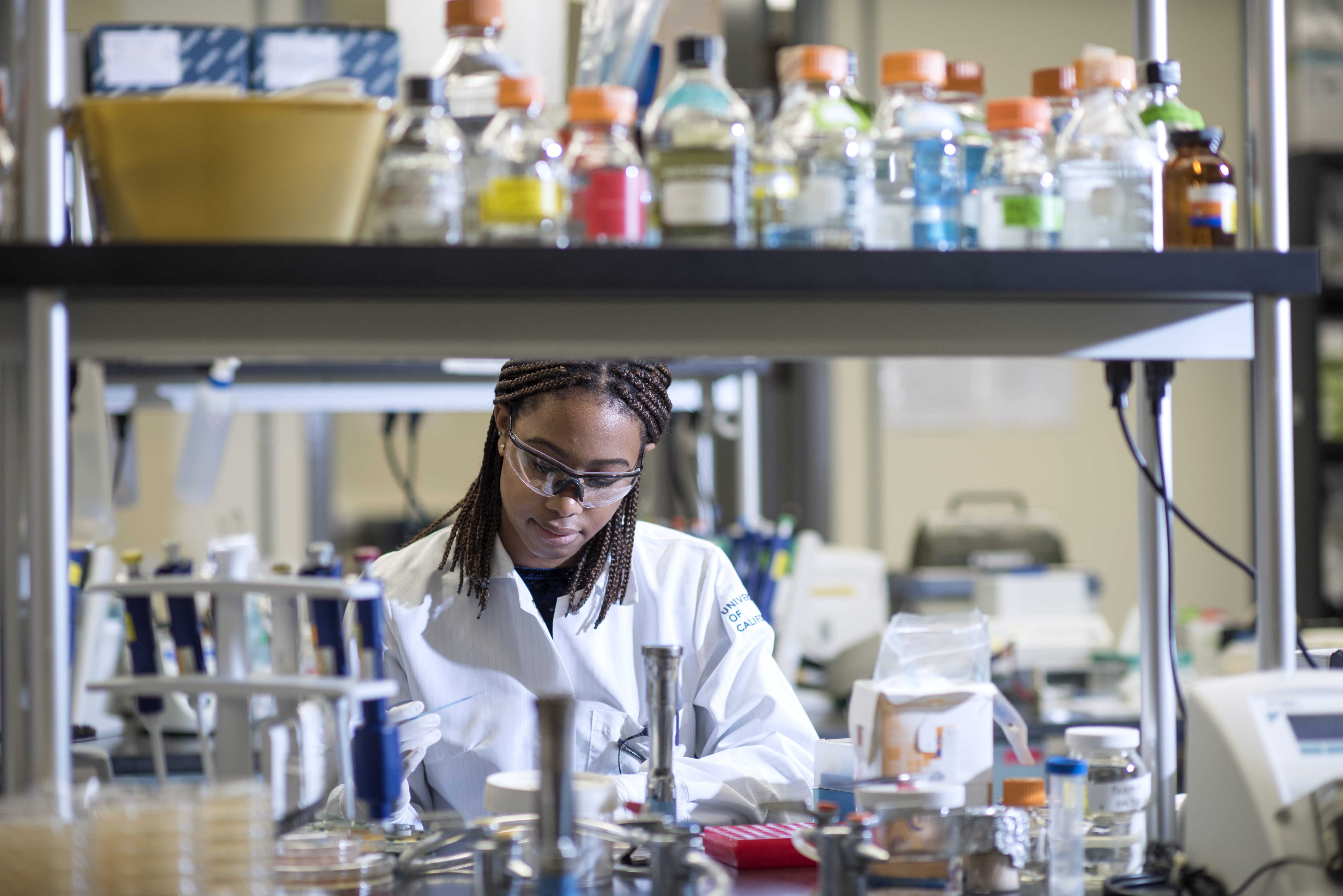Ph.D. ‘pipeline' promotes diversity
Programs aim to boost number of minority students seeking, earning biomedical doctorates

Hispanic Americans, African Americans and Native Americans make up more than 39 percent of the nation’s college-age population but earn only 11 percent of doctorates in the biological sciences. Since 2000, through mentorship and a network of professional opportunities, UCI’s Outreach, Research Training & Minority Science Programs have sought to change that. Sponsored by the National Institutes of Health and the Francisco J. Ayala School of Biological Sciences, they provide research guidance annually to over 60 undergraduates and 10 graduate students underrepresented in the biomedical fields.

Steve Zylius / UCI
Organizers of the Minority Science Programs recently celebrated the accomplishments of 12 MSP students who won awards at two national events: the Sigma Xi Student Research Conference in Raleigh, North Carolina, and the Annual Biomedical Research Conference for Minority Students in Phoenix. According to Marlene de la Cruz, MSP director of academic student development, this recognition reaffirms the programs’ mission of “increasing the number of academically excellent underrepresented students being trained as the next generation of biomedical research scientists.”
Conducted by biology, chemistry, biomedical engineering and pharmaceutical sciences majors, among others, the winning research presented at the fall conferences addressed such topics as antibiotic resistance genes, the effects of high glucose levels, and bacteria samples from an urban river. The events give students “the ability to communicate their research in a professional setting while finding opportunities for graduate school and career advancement,” De la Cruz says.
All MSP undergraduates have been involved in the programs since their freshman or sophomore year, and many leave with aspirations for postgraduate education. The ultimate goal of MSP is to act as a “pipeline” to Ph.D. programs for talented students, according to director Luis Mota-Bravo. And that pipeline is working: Since MSP’s inception, the number of underrepresented biomedical students at UCI opting to seek STEM doctorates has risen “drastically,” De la Cruz says, along with the graduation rate of underrepresented biomedical Ph.D. students at UCI.
Michelle Kalu, a senior in pharmaceutical sciences, won in the microbiology and molecular biology category at Sigma Xi’s 2017 event for her poster showcasing research on bacterial viruses and gut microbiome editing. She has already been accepted to elite Ph.D. programs in California and says that MSP influenced her decision to pursue an advanced degree.
“Going to conferences through MSP and sharing my research with not only other scientists but the public gave me the confidence to apply to top pharmaceutical sciences schools and explain exactly what I’m studying,” Kalu says. “I want to spend my career tackling issues in the health field, and MSP has given me the tools to start.”
Her colleague Lynnette Jackson, a senior in human biology, has dreamed of becoming a biologist since kindergarten, when her father was diagnosed with kidney cancer and she became curious about the science behind diseases. However, she hadn’t considered doctoral programs until joining MSP.
“I originally planned on being a doctor, but through MSP, I absolutely fell in love with research and decided that I want to treat diseases on a larger level – by understanding the chemistry behind them,” Jackson says. She has been invited to interview for admission to several highly ranked biochemistry Ph.D. programs.
The efforts of MSP students and faculty have been noticed by more than just conference committees. In 2005, the White House gave UCI’s MSP an organizational Presidential Award for Excellence in Science, Mathematics & Engineering Mentoring for promoting the scientific achievements of historically underrepresented groups. To Mota-Bravo, such accolades, as well as the recent conference wins, indicate a shift toward diversity that benefits not only MSP students but UCI, the scientific community and the public.
“We’re proud that MSP has increased awareness of the quality of research that underrepresented students can accomplish when opportunities are given them,” he says. “Undoubtedly, MSP will continue contributing to the academic enrichment of the campus while developing a strong and diverse biomedical workforce.”